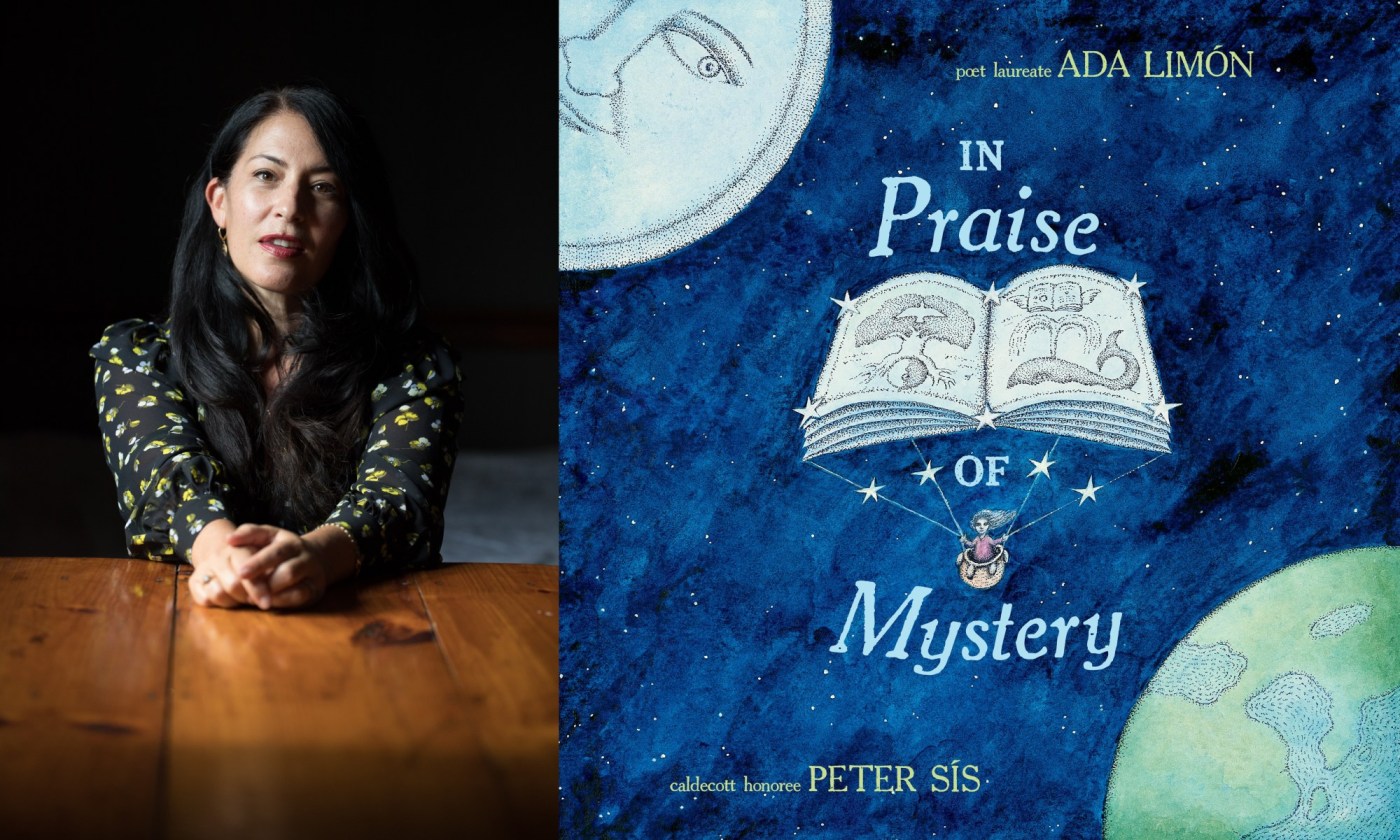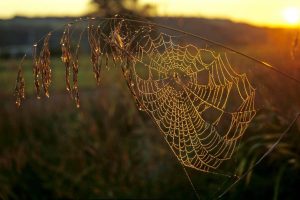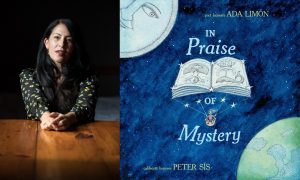
NASA’s Europa Clipper is launching Ada Limón’s poem on a 2-billion-mile journey
As the current United States Poet Laureate, Ada Limón can command a large audience.
But her work is about to reach almost beyond imagination.
Limón’s poem, “In Praise of Mystery,” is set to rocket off the planet on NASA’s Europa Clipper for a 1.8 billion-mile journey to Jupiter’s icy moon, Europa. The massive effort by a host of agencies is being headed up by Caltech and JPL in Pasadena.
SEE ALSO: Sign up for our free Book Pages newsletter about bestsellers, authors and more
The Europa Clipper’s launch date is being rescheduled because of Hurricane Milton, but the poem is ready to go: It was etched in Limon’s handwriting on a vault plate attached to the hull of the craft, which will orbit the moon 50 times or so, gathering data to see if there are areas that could support life.
Along with the poem, the craft carries a visual representation of the word “water” in 103 languages; since the presence of water is something both Earth and Europa share, there’s hope that an ocean exists under the icy surface. Also included is an equation by the late astrophysicist and astrobiologist Frank Drake and a microchip bearing the names of 2.6 million people who signed up online to tag along on the trip.
U.S. Poet Laureate Ada Limón during a Jan. 2023 visit to JPL. (Photographer: Gregory M. Waigand / Courtesy of NASA)
If visiting the suburbs of Jupiter isn’t convenient right now, the poet, along with award-winning illustrator Peter Sís, has just published a picture book version of “In Praise of Mystery,” which is in stores now.
While navigating a hectic travel schedule, the California native Limón took the Book Pages Q&A, answering our queries via email about the new book, writing for an interstellar audience and the books and people that shaped her reading life.
Q. Your poem is scheduled to be launched into space on NASA’s Europa Clipper (possibly by the time people read this). What’s it like to write under those high-pressure circumstances (considering you can’t make changes once your poem flies off)?
It was very hard to begin the poem and that’s partly because I often write from an intimate, personal place, and this poem wasn’t about me, not at all, it was about us. The poem “In Praise of Mystery” was written to try and honor every living being on earth. Of course, it’s a lot of pressure, but on some level, it was a beautiful lesson on dissolving into something larger – the love of our planet.
Q. You’re in your second term as the country’s poet laureate. Can you talk about what it’s like to serve in that role?
Everyone fills this role differently. If I’m ever feeling overwhelmed, I think about Joy Harjo, Juan Felipe Herrera, Tracy K. Smith, Natasha Tretheway, Rita Dove, Robert Hass, all the poets who have done such a remarkable job in this role but who are also, at their core, marvelous writers with great souls. I hold them with me wherever I go.
It’s been an incredible learning experience for me, not just because of the public aspect, but also because it makes you think of legacy, and who might be next, and what you might do to be of service in such a short period of time. I’ve always wanted to be of service and do some minor good in this harsh and suffering world. I hope I’m doing that.
Q. Please tell readers about your new book, “In Praise of Mystery,” which is a collaboration with artist Peter Sís.
I love this book so much. The book is a visual interpretation of my poem that is going to the second moon of Jupiter. Peter’s illustrations are lush and alive and so vibrant that they ignite not just the imagination, but your dreams. Each page is full of wonder and inspiration. I think of it as a children’s book, yes, but also a book for all ages.
Q. Do you prefer reading a poem to yourself or hearing it out loud?
Oh, I love both experiences. Sitting outside in a quiet spot and reading a poem to myself is so intimate and affirming. But hearing a poem aloud feels like a collective experience that I need sometimes. To go through it together. I need both experiences in my life.
Q. What are you reading now?
I just received my copy of “Latino Poetry: The Library of America Anthology” edited by Rigoberto González and it’s marvelous. So I’m spending time with that book, dipping in and out.
Q. How do you decide what to read next?
I often want to read what my friends and beloveds have written, so if they send something my way, I’ll usually dive right in.
Q. Do you remember the first book that made an impact on you?
There were many but I loved the book “The Witch of Blackbird Pond,” which was a book for young readers by Elizabeth George Speare. I was probably 9 or 10 when I read it and loved every word.
Q. What makes a poem memorable or successful to you?
Some of my favorite poems have exceptional lines, but what makes me hold on to them, remember them, return to them, is how they make me feel. I’ve always been a sucker for poems that reverberate in the bones.
Q. Is there a genre or type of book you read the most – and what would you like to read more of?
I absolutely read poetry the most out of any other genre – followed by nonfiction. I love reading fiction though, and I’d like to spend more time reading fiction.
SEE ALSO: Bestsellers, authors, books and more can be found in the Books section
Q. Do you have a favorite character or quote from a poem?
I must lie down where all the ladders start.
In the foul rag and bone shop of the heart.
– W. B. Yeats, “The Circus Animals’ Desertion”
Q. Is there a person who made an impact on your reading life – a teacher, a parent, a librarian or someone else?
All my parents were avid readers and writers, but especially my father and my stepfather. They also both have great reading voices and a good knack for storytelling.
Q. Do you have a favorite bookstore or bookstore experience?
I worked at a bookstore in my hometown of Sonoma, California, on and off from ages 15-21. It’s an independent bookstore called Readers’ Books. It’s still my favorite bookstore. I love everyone who works there! That’s where I learned to read poetry by myself and with an honest hunger for finding poems I loved. I still remember the feeling of opening up each poetry book and feeling like I’d finally found a language that made sense to me, the language of poetry.
Q. What’s something about your book that no one knows?
I secretly think the final image of the book is a tiny me made of stars.
For more about Ada Limón, go to her website. For more on the voyage of the Europa Clipper, visit the NASA site.


